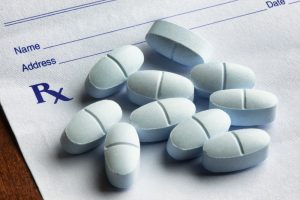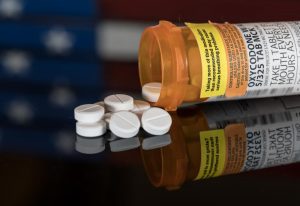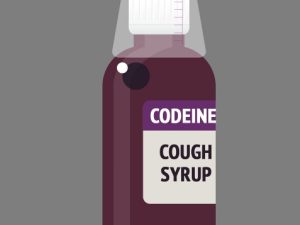Sobering up is a choice that affects your life forever. It takes hard work, persistence, and patience. Making the decision is easy but going through with the plan is the tricky part. Most addicts think that sobering up is easy and they do not need help to do it. They can wake up and decide to stop. However, this is not accurate.
Sobering up with professional or medical intervention is possible. However, most of the time, the person struggling with addiction relapses or goes through serious health complications caused by withdrawal symptoms and post-acute withdrawal symptoms. The addicts who manage to sober up tend to live a fulfilling and productive life.
Alternative Substance Abuse Treatment Options
 Emotional Freedom Technique (EFT) – This method is commonly known as tapping. As the name suggests, the technique entails tapping on your pressure points as you talk through the challenge you face. A good example is when a person struggling with addiction gets the urge to indulge. The person struggling with addiction will tap on a pressure point as they talk through whatever is triggering the urge. This technique also helps the person struggling with addiction know and learn their triggers. It combines western psychotherapy and eastern acupressure. The person with drug abuse problems will understand and deal with their triggers.
Emotional Freedom Technique (EFT) – This method is commonly known as tapping. As the name suggests, the technique entails tapping on your pressure points as you talk through the challenge you face. A good example is when a person struggling with addiction gets the urge to indulge. The person struggling with addiction will tap on a pressure point as they talk through whatever is triggering the urge. This technique also helps the person struggling with addiction know and learn their triggers. It combines western psychotherapy and eastern acupressure. The person with drug abuse problems will understand and deal with their triggers.- SMART Recovery – SMART stands for Self-Management and Recovery Training. It is like AA (Alcoholics Anonymous). The treatment program focuses on abstinence and leading a balanced life. Unlike AA, SMART recovery focuses on empowering the person struggling with addiction through cognitive behavioural therapy and motivational interviewing techniques.
- Online support groups – Some years back, meeting in dark basements was the only way of meeting other addicts who are having similar struggles. However, with the evolution of technology, addicts are now able to form support groups and arrange for online meetings. There are numerous sober communities in blogs that range from commentators, writers, and readers around the world. This is an effective way of accountability and support. Some sobriety websites even offer free pen pal options.
- Moderation management – This therapy works best for people who are beginning to form a negative co-dependency on a substance or alcohol. It focuses on people who indulge because of a triggering problem rather than an addict. As the name suggests, this program investigates altering the lifestyle of the person in moderation. This is different from abstinence-based programs that promote immediate abstinence. It involves nine steps. If this technique does not work for you, then you can try an abstinence-based program.
- HAMS – HAMS stands for Harm Reduction, Abstinence, and Moderation Support. This is a very liberal technique and outlook on substance abuse. It encourages people to be more responsible and safer when indulging in alcohol. It has 17 elements that are taught through live meetings, online community resources, and books. The treatment is not compulsory, and the person can stop when they want. An excellent example of this treatment is that a person will be required to create a chart of their drinking behaviour. This will help them know their triggers and track the frequency of their drinking. Additionally, the 17 elements inform the person on how to have fun without indulging in alcohol. This promotes a healthier mindset and lifestyle.
 Meditation – Mindfulness meditation helps the mental and physical health of a person. It has been known to calm the nerves and increase blood flow to the brain. Specifically, it directs blood flow to the anterior cingulate cortex, which deals with self-control. Turning mindfulness meditation into a habit will strengthen your self-control, which will help you deal with your addiction.
Meditation – Mindfulness meditation helps the mental and physical health of a person. It has been known to calm the nerves and increase blood flow to the brain. Specifically, it directs blood flow to the anterior cingulate cortex, which deals with self-control. Turning mindfulness meditation into a habit will strengthen your self-control, which will help you deal with your addiction.- Ibogaine – This is a psychedelic substance. It is considered illegal in the United States and other countries but has been known to help with addiction to alcohol, opiates, and other drugs. It is assumed to dampen the brain’s “reward system” and lessen the effects of PAWS. There has been minimal research on this so far.
- Hallucinogens – It has been claimed that hallucinogens can treat addiction. The Ibogaine named above falls in this category. Hallucinogens affect the brain cell receptors that are responsible for addiction control. However, the research on this is still ongoing.
- Rational Recovery – This program is abstinence-based, and it takes from the AVRT method AVRT stands for Addictive Voice Recognition Technique. This technique does not involve any support centres or groups. It deals with handling the addiction on your own. It has been known to lead to relapse. It focuses on isolating and ignoring the internal voice that leads you to substance abuse. The method is simple in theory but not when put into practice.
 NAD – NAD stands for Nicotinamide adenine dinucleotide. This is a coenzyme that aids in the production of energy in the body. NAD is injected at high doses into the body of the addict. It is used during the detox process because it reduces the effects of withdrawal symptoms and cravings. It has been known to speed up the detox process, especially for addicts who are struggling with addiction to benzos, methadone, cocaine, alcohol, and opiates.
NAD – NAD stands for Nicotinamide adenine dinucleotide. This is a coenzyme that aids in the production of energy in the body. NAD is injected at high doses into the body of the addict. It is used during the detox process because it reduces the effects of withdrawal symptoms and cravings. It has been known to speed up the detox process, especially for addicts who are struggling with addiction to benzos, methadone, cocaine, alcohol, and opiates.- LifeRing – This abstinence-based network focuses on supporting addicts through having physical meetings. It is popular in Europe, Canada, and the United States. Furthermore, it offers inline support for people who live in regions that do not have access to LifeRing Offices. This secular network is based on peer-to-peer support. The addicts get strategies and fellowships on how to stay sober and live a more rewarding and positive life. It focuses on the current life of the person struggling with addiction rather than the challenges that the person faced in the past. This support network is liberal enough to allow its members to attend other support groups when they want.
- Neuro-Linguistic Programming – NLP was created in the 1970s. It focuses on the cognitive, linguistic, and physical interplay of the addict. It helps people understand how the brain works and use this information to alternative negative behaviours, beliefs, and thoughts.



